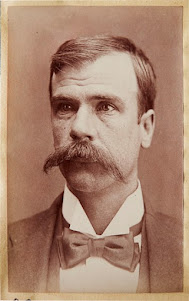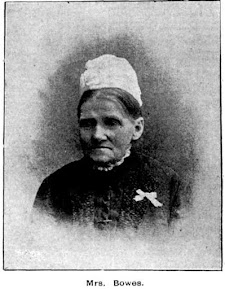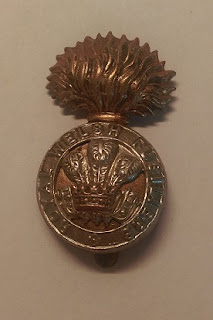The stain and shame of a murder
Today's blog relates to a
terrible murder at the hands of a person clearly, by the evidence presented,
suffering temporary insanity.
NAPOLEAN JEAN LISSON
Napolean was born on 15th
August 1867 in Paddington Sydney, eldest son of John Hector Lisson Gorrick and
Jane Underwood. In 1874 the family then consisting of 3 children moved to
Noumea where John assumed the identity of a Frenchman changing his surname slightly
to Lison. When Jane died in 1874 and with proceeds from her father's estate,
the family moved to Italy. John Hector died on 21st November 1886 in Rome aged
41.
By 1898, Napolean had prospered, had two sons, and ran a tobacconists and hairdressing shop in George Street Sydney as well as owning various other properties in the city and country.
On the morning of 30th August 1898, Henry Mordant, a traveler employed by Lisson, was conducting business with his employer in an upstairs room when whilst Mordant was writing out an agreement he was hit on the head with a blunt instrument by Napolean who then drew a knife attempting to cut Mordant's throat. Finding the blade too blunt for its original purpose Mordant made his escape but not before sustaining a severe laceration to his ear. Lisson picked up a revolver and followed him down the stairs. Mrs. Lisson threw herself before her husband, who was threatening to kill everyone, pointed the revolver at her, fired the weapon and its bullet passed through the palm of her hand. She screamed and fainted. Lisson assumed his wife was dead and went to find others. His three hairdressers had fled into the street but as he rushed into the room, he met his 16-year-old sister-in-law, Lillian (Lily) Gorrick. As she saw the blood upon Lisson, she turned to flee but he aimed the gun and fired, killing her instantly. Mrs. Lisson regained consciousness and ran to a nearby shop for help. Lisson's two young sons, Victor, aged 9 and Rowland, aged 7 were still in the house and Lisson then bludgeoned them with a hammer inflicting severe head wounds. It was at this time that Senior Sergeant Broderick entered the premises and seized Lisson.
Lisson immediately admitted
the crime stating that he hoped that both the boys had died even though they
defended themselves well and that he knew he'd be hung if both were dead stating that was a fitting punishment.
At the coronial inquest and
subsequent trial in October 1898, the question of Lisson's mental health arose.
An employee stated that prior to the murder Lisson had been sulky and in a
temper. Mrs. Lisson questioned the contents of her husband’s medicines, and it
was revealed that a number of family members had been committed to an asylum in the past.
It was concluded that Lisson
did kill Lily Gorrick and was aware he was doing so at the time. The jury
agreed but they believed Lisson to be temporarily insane and asked that he be
shown mercy. Lisson was asked by Justice Owen whether he had anything to say,
and his response was incoherent, but he clearly stated that he objected to the
Jury's recommendation. The death sentence was pronounced, Lisson was
admitted to Darlinghurst Gaol and placed in the condemned prisoner's cell.
On the 4th of November 1898 the
Executive Council commuted Lisson's death to life imprisonment. He was
transferred to Goulburn Gaol a few days later.
In November 1912, 14 years
after sustaining serious head injuries inflicted by his father, Rowland Lisson
died from multiple neuritis, a loss of function from those injuries that had
damaged vital nerves.
On 31 October 1916, Lisson
was discharged from Goulburn Gaol on special licence subject to meeting
conditions for the remainder of his sentence. The first the family knew of this
was when Lisson appeared at his father-in-law’s home, Stratford House Tahmoor,
near Picton.
Ancestry.com via public domain images
The family were greatly
shamed by the actions of Napolean Lisson, a distant relative, and having a
convicted murderer who carried their name. In late Victorian and Edwardian
times life was all about respectability.
It was noted that on Victor
Lisson's (who had changed his surname to Gorrick) marriage certificate to
Florence Cooper in April 1912, he listed his father as
"deceased".
Emma Lisson (Gorrick) died
in 1925.
It would appear that
Napolean Lisson kept out of trouble and was listed as a "hawker" in
the electoral rolls of 1930. He married Catherine Stella Tinker in 1940 at the
age of 73 and lived in Auburn until his death on the 27th of August 1958 at the
age of 91.
Lillian Edith Gorrick lies
in an unmarked grave with her sister Emma Lisson (Gorrick) just a few steps
from the Red Rest House or "Elephant" House as it is more commonly
known. Next to them lies Rowland Lisson also in an unmarked grave. It seems
that the shame of the murder and attack had far reaching effects.
Rowland Lisson and other family member's grave - Author's own collection
I have been unable to find
any resting place for Napolean Jean Lisson or his second wife, Catherine.
For today's blog I have
referenced ancestry.com; Rookwood General Cemetery grave search; Wikitree,
Australian Royalty; NSW State Archive site and their "Captured: Portraits
of Crime" exhibition information; various trove newspapers archives in
particular the Sunday Times dated the 9th of October 1898.
A tragedy in every sense of
the word affecting all members of the family as well as the perpetrator.
If you have any comments or
information to add to this blog, please do so below or at the Facebook group
page under
rookwoodcemeterydiscoveries
or simply send me a message
at
lorainepunch@gmail.com
Until next week










So sad but interesting
ReplyDeleteso many tragic deaths abound in Rookwood
Delete